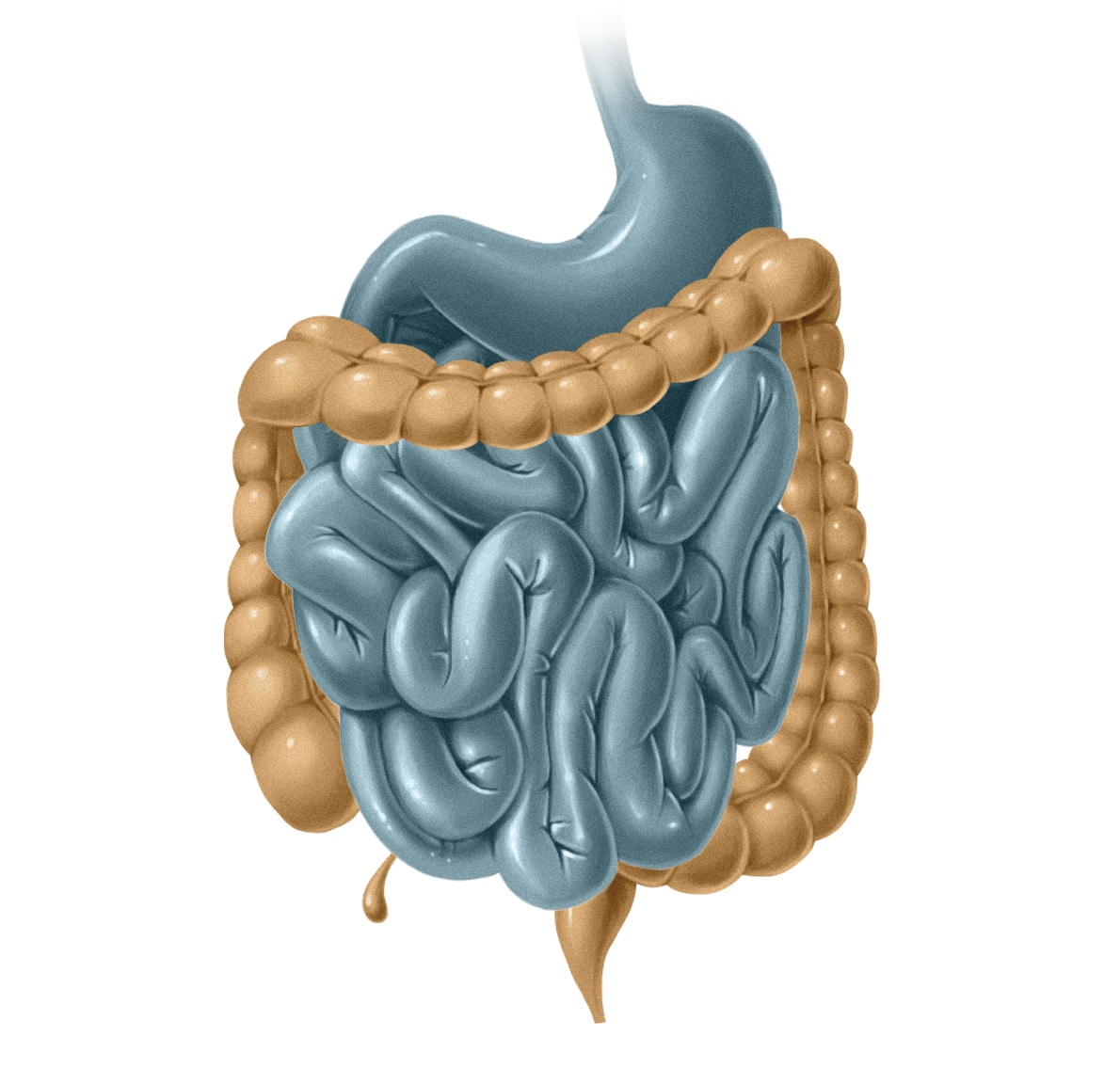
“Gluten” is basically a buzzword at this point, but even if you're avoiding it, do you really know what it is? And did you know that there’s other stuff in wheat that’s also worth avoiding: wheat is bad news for reasons that have nothing to do with gluten. Here's a look at 11 reasons why.
The Basics
First of all, a refresher: wheat is a grain. The calories in wheat come mostly from carbohydrates, but wheat also contains a few problem proteins.
- Gluten
- Wheat Germ Agglutinin
- Amylase Trypsin Inhibitors
Problems caused by these proteins are not the same thing as blood sugar problems caused by the carbohydrates in wheat. It’s true that getting a majority of calories from wheat (especially refined wheat) can cause metabolic problems like blood sugar swings. But these problems would be caused by any high-carb diet, and they’re only relevant for people eating a large amount of wheat: something like a spoonful of soy sauce wouldn’t be a problem.
This post is not about metabolic issues like blood sugar and carbohydrates. It’s about a totally different list of problems caused specifically by wheat and the proteins it contains. These problems are relevant even for people eating a small amount of wheat, and even for people who do fine eating carbs.
So what’s so bad about wheat?
1. Wheat Problems Aren’t Restricted to People with Celiac Disease
The most famous problem with wheat is celiac disease, an autoimmune reaction provoked by gluten and treatable with a gluten-free diet. 30-40% of people have the genetic background to potentially develop celiac disease, but only about 1-3% of people actually do – it’s not clear why but it may have something to do with the gut microbiome.
Most people know that celiac disease requires absolutely strict avoidance of all gluten. But a lot of people also think that if you don’t have celiac disease, you’re completely in the clear.
That’s not true. Recently there’s been an increased amount of interest in non-celiac gluten sensitivity (NCGS). Plenty of people have documented sensitivities to gluten that aren’t actually celiac disease (as you’ll read below, there’s a different immune reaction involved). There’s also the overlapping problem of other proteins in wheat – wheat germ agglutinin and amylase trypsin inhibitors are not the same thing as gluten and you can be sensitive to them regardless of how your body handles gluten.
Wheat isn’t just a problem for people with celiac disease, and there’s more to wheat than gluten.
2. Gut Inflammation

Inflammation is the natural response of your immune system to injury. You can see it in action whenever you get a cut or splinter and the surrounding area gets all red and tender. The proteins in wheat are gut irritants: they’re like that papercut or splinter digging into the lining of your gut, causing an inflammatory response.
The most famous case is the inflammation caused by gluten in people with celiac disease or non-celiac gluten sensitivity. But inflammation from wheat is also a problem even for people who aren’t sensitive to gluten specifically. Amylase trypsin inhibitors (ATIs for short) that can provoke an inflammatory immune response in the GI tract by stimulating immune cells. This occurs in people regardless of whether they have celiac disease or not – it’s a completely different problem from gluten and it can cause trouble for you regardless of whether or not you’re sensitive to gluten in particular.
That inflammation is dangerous because…
3. Increased Intestinal Permeability
Inflammation in the gut contributes to a problem called intestinal permeability. The gut has a very complex system of “border control” that lets digested food into your bloodstream (this is how you get nutrients from it) while keeping everything else out. Every day, you swallow millions of random viruses, bacteria, indigestible molecules like dust, and other stuff that needs to go out the other end, not into your bloodstream.
Inflammation in the gut messes up that system of border control. It loosens the junctions between cells in the gut wall so too much stuff can pass through. This is often described as making the gut “leaky” (hence the popular name of “leaky gut”).
On top of inflammation leading to increased permeability, gluten accelerates this process by stimulating the release of a protein called zonulin. Zonulin independently contributes to loosening the junctions between cells in the gut. Add together the inflammation and the zonulin, and wheat has a powerful effect on gut permeability, which is really a problem.
Intestinal permeability is a big problem – most notably because it’s an essential factor in the development of autoimmune diseases.
4. Double Trouble: Wheat Germ Agglutinin
Another one for the non-Celiac crowd: wheat germ agglutinin is an inflammatory, immune-disrupting protein found in wheat and despite the similar name it isn’t the same thing as gluten. Wheat germ agglutinin can provoke an inflammatory response in gut cells and disturb the natural immune barrier in the gut, making the gut more permeable to things that don’t belong in your blood.
Again, this is totally separate from the problem of gluten. Obviously, gluten and WGA usually come as a package deal, because they’re both found in wheat, but you can have trouble with WGA even if you had no reaction to a gluten elimination challenge.
5. Increased Vulnerability to Gut Autoimmunity
Items #1-4 on this list discussed how wheat makes the gut more permeable, so all kinds of stuff can get into the bloodstream even though it shouldn’t be there. Included in that stuff is…gluten! Specifically, gliadin, which is a component of gluten. Once it’s inside your bloodstream, gliadin runs into your immune system, and that’s where the problems really start, in the form of molecular mimicry.
Molecular mimicry works like this: some foreign thing gets into the bloodstream. The immune system forms antibodies against it. So far, so good: that’s how the immune system is supposed to work. But if that foreign thing looks enough like your own body’s tissue, then the antibodies formed to fight it might start attacking your own body as well.
Molecular mimicry may be the reason why people with celiac disease mount an attack on their own gut cells: to your immune system, gliadin looks a lot like the cells lining the gut. But it's not just celiac disease! Gluten-related inflammation may also be a factor in the development of Crohn's Disease, another autoimmune gut disease. In this study of patients with inflammatory bowel disease (Crohn's Disease and ulcerative colitis), a gluten-free diet helped a majority of people who tried it.
And gut cells aren’t the only cells affected by gluten-related autoimmunity…
6. Increased Vulnerability to non-Celiac Autoimmune Diseases
If you go digging into the research on celiac disease and gluten, you’ll find a bunch of studies linking it to all kinds of other autoimmune diseases, including autoimmune thyroid disorders, type 1 diabetes, fibromyalgia (for both celiac disease and non-celiac gluten sensitivity!), rheumatoid arthritis, autoimmune liver disease, and a couple different autoimmune skin diseases.
The common factor here might be the gluten. Wheat gluten is a major potential trigger of Type 1 Diabetes (that’s the autoimmune type, not the diet-and-lifestyle type). In this study, feeding mice a gluten-free diet reduced the rate of Type 1 diabetes in their children. There’s also evidence that breastfeeding human children reduces the rate of type 1 diabetes, which would make sense if gluten is the problem because breastfeeding delays the introduction of gluten to the baby.
Hey, by the way, guess what other common health problems have an autoimmune component? Obesity and Type 2 Diabetes.
7. Autoimmune Reactions in People Without Celiac Disease.
Point #6 above gave a lot of reasons why celiac disease is associated with other autoimmune diseases, but it’s not limited to people with celiac disease. If you thought non-celiac gluten sensitivity was unrelated to autoimmune disease, you thought wrong! This study found that a lot of people with non-celiac gluten sensitivity have autoimmune markers in their blood, suggesting that the wheat exposure might be causing autoimmune issues even without celiac disease.
One interesting aspect of this is that patients with non-celiac gluten sensitivity may have a different type of autoimmune reaction, which just underlines that celiac disease and non-celiac gluten sensitivity are two different things. But the point is that both involve potentially serious autoimmune responses.
8. Damage to the Gut Biome

Not the all-important gut biome! The gut biome, aka the gut microbiome, aka the gut flora, is the collection of friendly bacteria that live in your gut. They help regulate your immune system, control intestinal permeability, digest your food, synthesize nutrients like vitamin K2, send hunger/fullness signals to your brain, and do all kinds of other stuff.
But they really don’t like gluten, and gluten really doesn’t like them. People with celiac disease often have very bad problems with the gut flora, but those problems are significantly reduced when the person eliminates gluten. Once again, it’s not limited to celiac disease: non-celiac gluten sensitivity also involves disturbances in the gut flora.
Even in people who aren’t sensitive to gluten at all, inflammation caused by other components of wheat can also rebound on the gut biome. And independently of any of that, wheat is also high in FODMAPs, which may be an issue for people with sensitivities to that.
9. Gastrointestinal Symptoms (Even for People who Don’t have Celiac Disease)
All this stuff about gut bacteria and intestinal permeability might seem totally abstract and disconnected from the real world, so let’s bring it back down to earth: this stuff has actual, noticeable consequences. Most of the direct damage involves the gut, so it makes sense to start there:
- In people with celiac disease, gluten causes immediate and severe symptoms (diarrhea and/or constipation, heartburn, pain, bloating, gas, stools that smell awful, sometimes vomiting…).
- In people with non-celiac gluten sensitivity, symptoms are typically similar to celiac disease.
- Even in people who aren’t sensitive to gluten specifically, the inflammatory action of other components of wheat (wheat germ agglutinin and amylase trypsin inhibitors) contributes to chronic, relapsing gut problems.
Of course, there are non-wheat-related reasons why a person might have GI problems (stress is a biggie, and stress is certifiably gluten-free). But gluten can contribute to the problem, even if it’s “only” a low-level inflammatory response that you’ve gotten used to. Sure, constipation and feeling bloated after meals might be your “normal,” but what if it didn’t have to be?
10. Brain Symptoms
Think of gluten or wheat issues, and you probably think of the gut first. The typical symptoms are all gut-related. But actually, there’s another important organ at stake: your brain.
Brain fog and fatigue are symptoms of both celiac disease and non-celiac gluten sensitivity. On a more serious note, the gut inflammation and microbiome disturbances involved in the immune-inflammatory response to gluten may increase vulnerability to dementia and Alzheimer’s disease. Autoimmunity in general (whether it’s celiac disease or some other gluten-related autoimmunity) may be involved in depression.
This doesn’t mean that gluten is the cause of all mental health problems or that eliminating gluten will cure them. Nobody is saying that. Mental health is complicated and there are all kinds of factors to consider. The point is that in some people, gluten may be one of them.
11. Skin Symptoms
The most famous cause of gluten-related skin problems is celiac disease, which can cause a skin disease called dermatitis herpetiformis. Symptoms of dermatitis herpetiformis include an itchy, red rash with raised blisters. Symptoms typically show up in a person’s 20’s.
And once again, this isn’t limited to celiac disease. This study describes the way non-celiac gluten sensitivity can show up as skin problems: “very itchy...similar to eczema, psoriasis, or dermatitis herpetiformis.” The itchy skin showed up most often on the arms and legs.
The upshot: wheat is pretty bad news even for people who don't have celiac disease. And the symptoms don't necessarily show up as dramatic episodes of vomiting and diarrhea. Why not try giving it up for a few weeks just to see how your body reacts - you might be surprised!





Leave a Reply